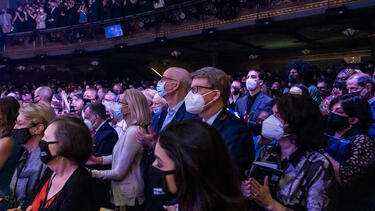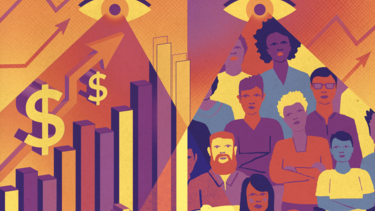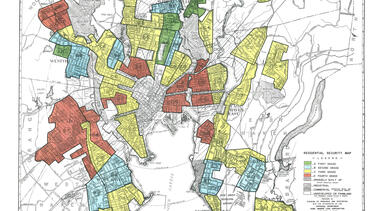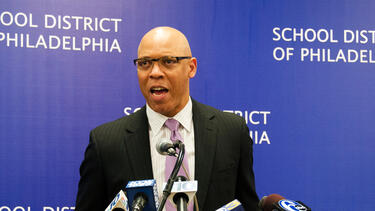Black Lives Matter
Teachers See Misbehavior from Black Students as More Blameworthy
In order to isolate the role of race in teacher-student interactions, Prof. Jayanti Owens created videos using actors to depict misbehavior. She found that teachers are more likely to describe an incident with “blaming” language if the actor playing the misbehaving students is Black.

How a Time Out Can Help Address Bias
The Bias Time Out, developed by a team including Gina Calder ’22 and Dr. Cecelia Calhoun ’21, helps healthcare teams spot and address bias in real time.

Ratings Systems Amplify Racial Bias on Gig-Economy Platforms
A new Yale SOM study found that the five-star ratings on platforms like Uber and TaskRabbit can spread the effects of racial discrimination by displaying ratings from biased users to those who otherwise would not discriminate.
How Property Tax Foreclosure Accelerates Gentrification and Magnifies the Racial Wealth Gap
Non-white homeowners are at disproportionate risk of losing their homes over unpaid property taxes, shows new research from Yale SOM’s Cameron LaPoint.

Black Households Have Less Access to Banks
Why do some demographic groups visit banks less than others? According to a new study by Yale SOM’s Alexander Zentefis and the Fed’s Jung Sakong, the primary barrier for Black households is a lack of nearby branches.

Black Boys Face Double Jeopardy at School
Teachers tend to blame Black boys more than White boys for identical misbehaviors, finds Yale SOM’s Jayanti Owens. Black and Latino boys also receive harsher punishment because the schools they attend tend to have more punitive cultures.

The Reckonings Facing the Theater
The challenges of the last several years, including the upheaval of COVID-19 and the anti-racism movement that followed George Floyd’s murder, have had profound consequences for American theater. In a recent conversation with Yale SOM, three Yale alumni in the industry offered their perspectives on what comes next.

Making the ‘Business Case for Diversity’ Can Backfire with Underrepresented Groups
Many companies say that they are committed to diversity because it boosts firm performance. In a new study, Oriane Georgeac at Yale SOM and Aneeta Rattan at London Business School find that this explanation can have detrimental consequences for the very applicants that companies seek to attract.

The Past and Present of Race, Money, and Equity in America
Journalists Louise Story ’06 and Ebony Reed argue that understanding the grim history of race and money in the United States is key to building a more equitable future.

Medicare Helps Close Racial Gaps in Access to Healthcare
In a new study, Yale SOM’s Paul Goldsmith-Pinkham and his co-authors use the transition to Medicare eligibility to test whether universal health coverage can help reduce racial disparities in health.

How the Philadelphia Schools Confronted Systemic Racism
William Hite, Philadelphia’s superintendent of schools, describes how the system sought to create an inclusive process for rooting racism out of its structures.
